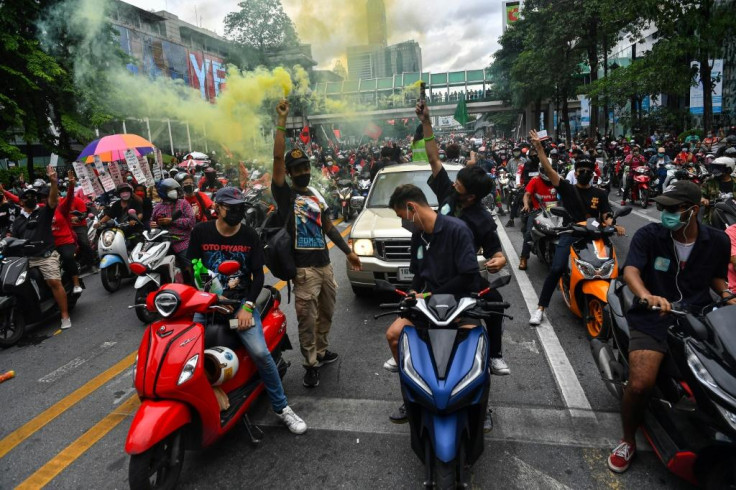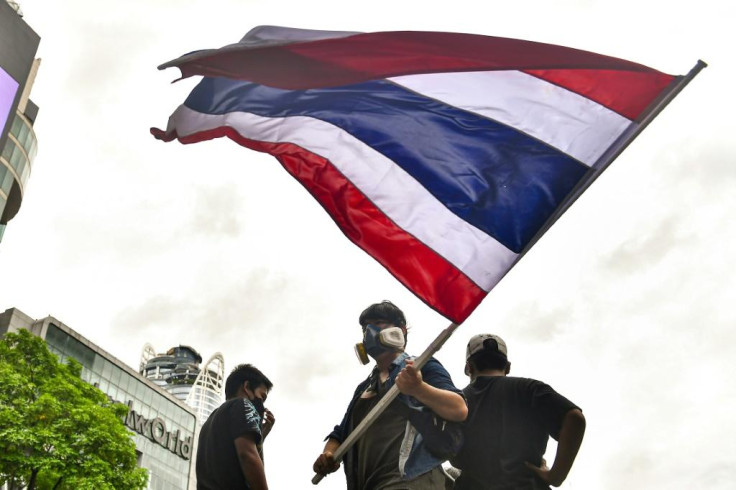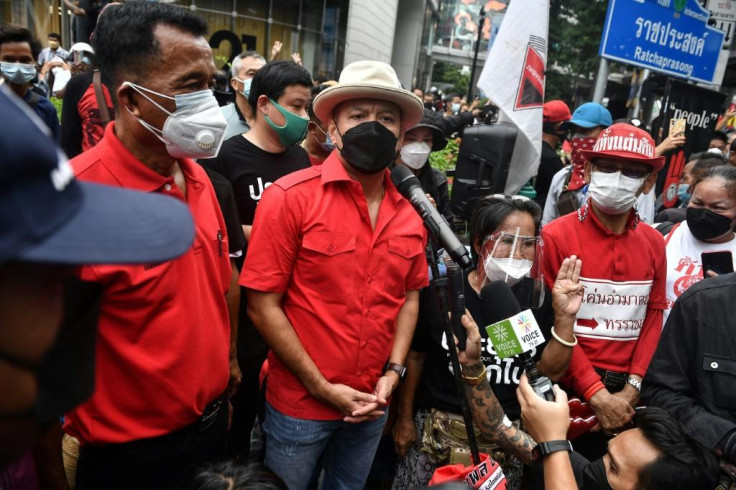Thousands join convoy protests against Thai PM
Sunday's protests come after a week of confrontations between demonstrators and police.
Thousands of protesters in cars and on bikes massed in Bangkok's central shopping district Sunday, one of several mobile rallies across Thailand demanding Premier Prayut Chan-O-Cha resign over his handling of the coronavirus pandemic.
By nightfall, some protesters clashed with authorities, shooting fireworks and flinging projectiles to defend against riot police, who had deployed rubber bullets, tear gas and water cannon.

The use of such weapons by police has become increasingly frequent during anti-government protests, which have intensified as the kingdom grapples with its worst outbreak so far.
Overburdened hospitals and a sluggish vaccine roll-out -- coupled with financial woes from weeks-long restrictions on businesses -- have fanned anger at Prayut's administration.
Sparked by concerns about public gatherings spreading the virus, protesters have in recent weeks turned to organising massive car convoys at major intersections -- thus clogging up Bangkok's already traffic-choked streets.
Thousands turned up Sunday afternoon for at least three rallies across the Thai capital -- with the largest near Bangkok's gleaming shopping malls, empty in recent weeks.
"The time is up for Prayut. The government has shown clearly they will not take responsibility for any loss," shouted Nattawut Saikuar, a politician long associated with former premier Thaksin Shinawatra.

Protesters -- who were joined by saffron-robed monks and an LGBTQ contingent carrying rainbow-coloured umbrellas -- flashed the three-finger salute of resistance.
Cargo containers stacked on top of each other blocked the road to Prayut's residence.
Police stationed on an elevated tollway deployed rubber bullets, tear gas and water cannon against protesters who set off firecrackers and fired marbles from slingshots, deputy national police spokesman Kissana Phathanacharoen said.

"So far, three people were arrested in connection with this violence and police managed to seize a pistol, ammunitions and a knife from them," he said, adding one police officer was injured.
By 9:00 pm (1400 GMT), protesters were still at Din Daeng intersection, the site of several clashes earlier this week, defying a city-wide coronavirus curfew.
Earlier in the day, more so-called "car mobs" also rallied in the beach city of Pattaya, as well as in the northern cultural hub of Chiang Mai.
Sunday's protests come after a week of confrontations between demonstrators and police, who have increasingly used rubber bullets, water cannon and tear gas to quell the rallies.
At least three protesters were injured Friday, but authorities have consistently defended their use of force as appropriate.
"We only use it (force) when it is necessary," National Police chief Suwat Jangyodsuk said Sunday before the rallies kicked off, adding more than 130 people had been arrested but most were released on bail.
The anti-government movement first gained momentum last July.
At its peak, it drew tens of thousands to street rallies, demanding the resignation of Prayut -- a former army chief who came to power via a 2014 coup.
But attendance waned this year, as the public stayed away due to Covid-19 fears.
Copyright AFP. All rights reserved.
This article is copyrighted by International Business Times, the business news leader





















